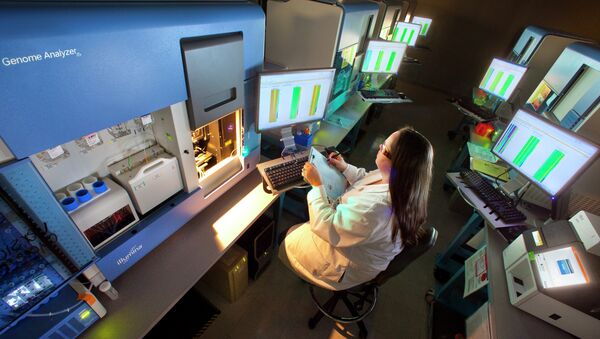That has led academic institutions and healthcare companies to choose one cloud computing service or the other: Google Genomics or Amazon Web Services.
The growth of the industry is due, in part, to the increasing demand for personalized medicine, which patients are treated based on their DNA profile.
In order to understand how certain genetic profiles respond to different treatment, a large amount of data is required. Drug manufactures and universities, alike, have already begun projects to sequence the genomes of thousands of people.
Clients rely on Google and Amazon to store genomics data rather than housing it on their own computers because they believe the tech giants do a better job keeping it secure, controlling costs and allowing it to be easily shared.
Google is charging $3 to $5 per month for its service, while Amazon charges $4 to $5 per month. The companies also charge for computing data and data transfer, when scientists use the analytical software.
Now an estimated $100 million to $300 million business globally, the cloud genomics market is expected to grow to $1 billion by 2018, research analyst Daniel Ives told Reuters. By that time, the entire cloud market should have $50 billion to $75 billion in annual revenue, up from about $30 billion now.
Google and Amazon are also working to develop analytics for this kind of DNA data, which helps scientists analyze their data more easily. Microsoft Corp. and IBM are also trying to enter that segment of the industry.
Neither company discloses the amount of genomics data it holds, but based on interviews Reuters conducted with analysts and genomic scientists, as well as the companies' own announcements of what customers they have won, Amazon Web Services may hold a larger share.




